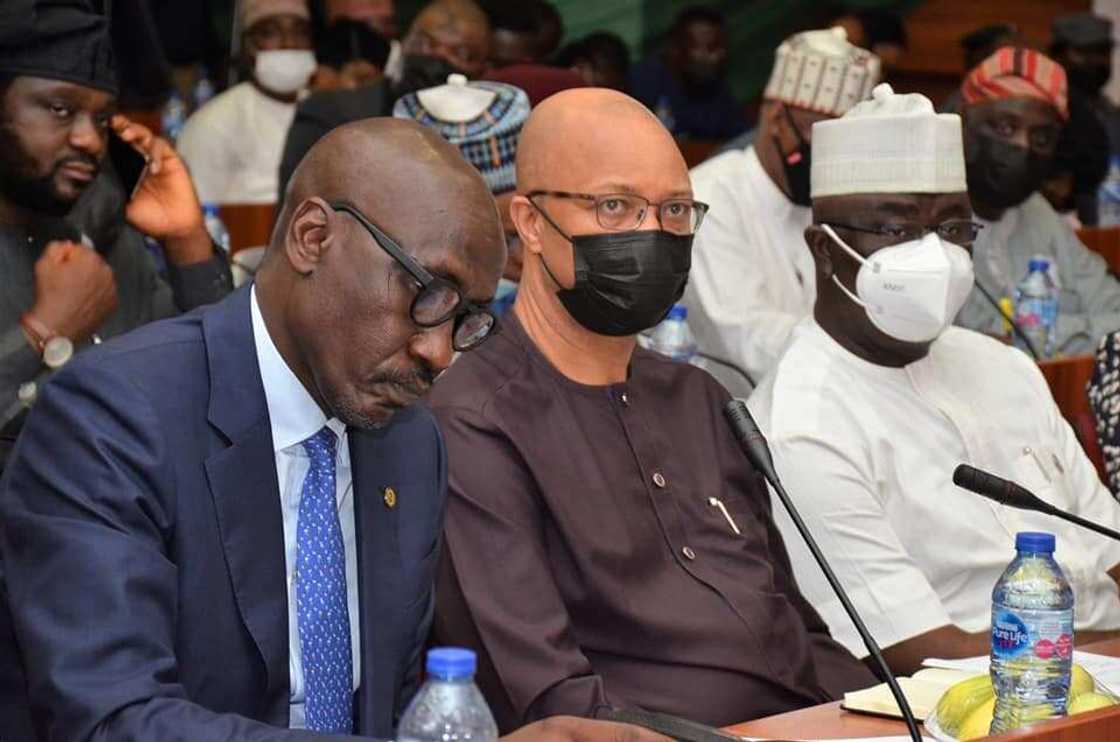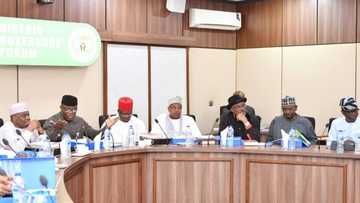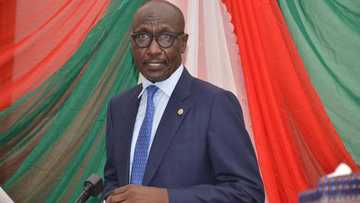NNPC Boss reveals Why Petrol Smuggling Persists in Nigeria
- The group managing director of the NNPC, Mele Kyari, has expressed dissatisfaction over smugglers activities across the nation’s borders
- NNPC spokesperson, Garba Deen Muhammad, stated that the huge price differential in the pump price of petrol is a major factor influencing the activities of petrol smugglers
- He noted that joint efforts by the corporation and other agencies to tackle the menace of smuggling of petroleum products in the country have proven abortive overtime
Mele Kyari, the group managing director of the Nigerian National Petroleum Corporation (NNPC), has highlighted factors responsible for petrol smuggling in Nigeria.
The Cable reported that Kyari blamed the huge price differential in the pump price of petrol in Nigeria and neighbouring countries for the high rate of smuggling of the commodity across the nation’s borders.
Garba Deen Muhammad, the NNPC spokesperson, said Kyari made this revelation on Thursday, September 3, during a presentation at an interactive session by the joint senate committee on the 2022-2024 medium-term expenditure framework and fiscal strategy paper (MTEF/FSP).

Source: Facebook
This Day reported that NNPC had always argued that the current fuel subsidy regime remains unsustainable, pointing out as of June this year, it was paying as much as between N120 billion and N140 billion every month, with about N94 under-recovery per litre at the time.
PAY ATTENTION: Join Legit.ng Telegram channel! Never miss important updates!
Kyari stated that with a price difference of over N100 per litre between what is sold in Nigeria and in countries around the nation, it was difficult to curb the activities of petrol smugglers.
He explained that joint efforts by the corporation and some federal agencies to combat the menace of smuggling of petroleum products have been largely hampered by the current arbitrage situation.
He emphasized that the activities of smugglers so far have made it difficult for the country to determine the actual consumption figures for petrol.
On the MTEF assumptions, the GMD reiterated a base oil price scenario of $57 per barrel for 2022, $61 per barrel for 2023 and $62 per barrel for 2024, predicated on a base national production of 1.883 million barrels per day in 2022, 2.234 million barrels per day in 2023 and 2.218 million barrels per day in 2024.
Kyari explained that the assumptions were arrived at after consultations with the ministry of finance and other relevant stakeholders, while also undertaking a careful appraisal of the three-year historical dated Brent oil price average of $59.07 per barrel premised on Platts spot prices among other considerations.
He hinted further that price growth was to be adjusted by the lingering concerns over COVID-19, increased energy efficiency as well as obvious switching due to increased utilisation of gas and alternatives for electricity generation.
NNPC Finally Discloses When There Will Be Hike in the Price of Petrol
Legit.ng had earlier reported that the group managing director of the Nigerian National Petroleum Corporation (NNPC), Mele Kyari, has said the federal government will sustain the payment of petrol subsidy till 2022.
It was reported that Kyari made this known at a stakeholders’ hearing organised by the Senate on the 2022-2024 Medium Term Expenditure Framework and Fiscal Strategy Paper in Abuja.
The NNPC boss said the decision to exit the subsidy regime would be determined by the outcome of the ongoing negotiations between the federal government and organised labour.
Source: Legit.ng




